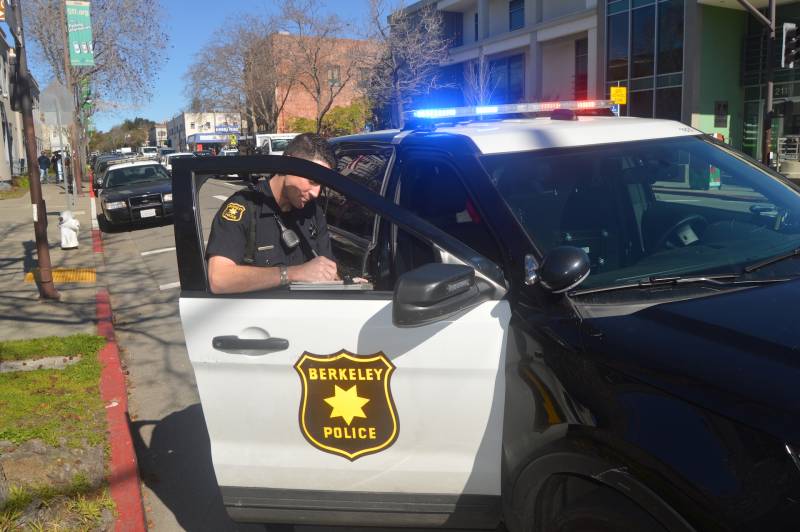The city of Berkeley is considering a proposal to shift traffic enforcement from armed police to unarmed city workers in a bid to curb racial profiling and reduce law enforcement encounters that can turn deadly, especially for Black drivers.
Experts say they believe the proposal before the Berkeley City Council Tuesday to separate traffic from law enforcement is the first of its kind in the U.S., as cities attempt broad public safety reforms following the death of George Floyd after a white officer pressed a knee to his neck in May.
Numerous studies have shown Black motorists are much more likely to be stopped by police than whites for minor traffic infractions — and end up as tragic headlines. Philando Castile, 32, was shot and killed after he was pulled over for a busted tail light during a traffic stop in 2016 in Minnesota. Sandra Bland, 28, died in a jail cell three days after being stopped for failing to signal when changing lanes in Texas in 2015.

